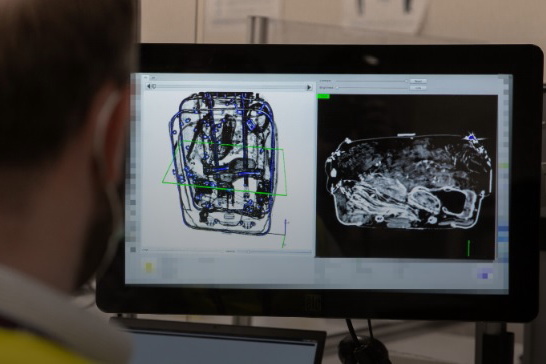|
(26 Nov 2021)
Smiths Detection has collaborated with Microsoft
and London Heathrow Airport in the development of a multispecies
AI model designed to uncover illegally trafficked wildlife
concealed in baggage and air cargo.
Initial testing of the algorithm which took place
at Heathrow has shown a success rate of over 70% in identifying
trafficked animals, including ivory.
As part of Project SEEKER, an extensive library of
X-ray images taken from Smiths Detection�s CTX 9800 baggage
scanners at Heathrow were used to train the Microsoft AI for Good
model.

Smiths Detection and Microsoft are using AI to help combat wildlife trafficking
The machines can screen up to 250,000 bags a day,
generating large amounts of data for inspection.
Globally, illegal wildlife trafficking is among
the five most lucrative global crimes and is often run by highly
organised criminal networks. Combatting wildlife trafficking could
therefore cut off revenue streams to organised crime and help stop
animal poaching.
�SEEKER is testament to the impact we can make
when we work collaboratively across the private and public sector.
This tool can be deployed with existing screening and security
infrastructure and can empower those working on the frontline of
illegal wildlife trafficking to better detect, seize and
investigate trafficked items and the criminal network behind
them,� said Daniel Haines, Data and Artificial Intelligence
Solution Specialist at Microsoft. �Following this successful
trial, we�re calling for major transport hubs including airports
to deploy the technology and put the model to work on regional
illegal wildlife trafficked priorities along with NGOs and law
enforcement agencies to share intelligence data. Together, we can
stop illegal wildlife trafficking in its tracks.�
|
Headlines: |
|
|

